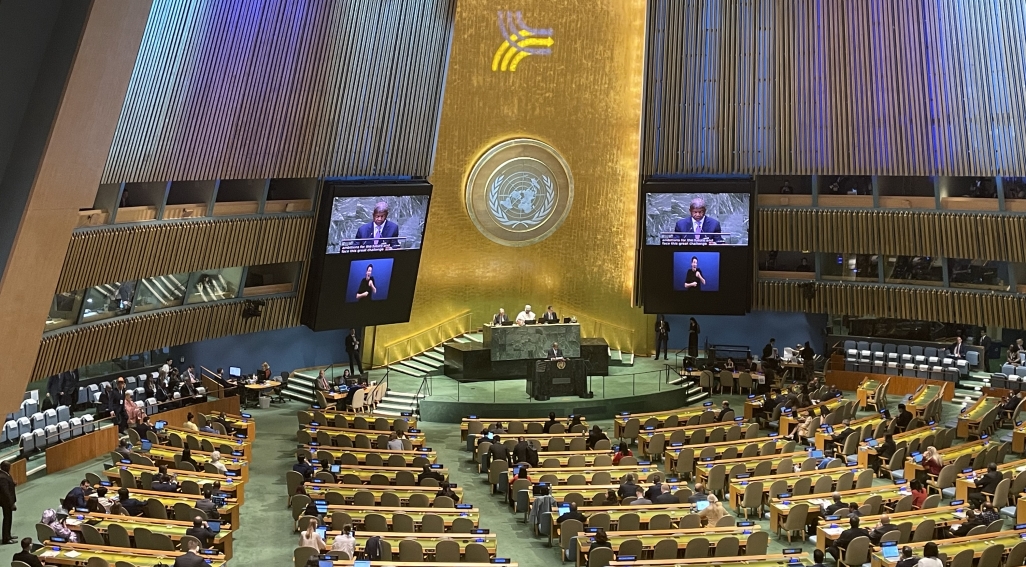At the Summit of the Future taking place in New York as part of the UN General Assembly, world leaders have adopted a "Pact for the Future". This encompasses wide-ranging commitments, including the transition away from fossil fuels to achieve net zero by 2050. Professor Rosie Green, Professor of Environment, Food and Health at LSHTM and co-PI of the Pathfinder Initiative, who is attending the Summit and events at New York Climate Week to highlight the health benefits of taking climate action, urges governments to deliver on these commitments for a healthier, more sustainable future.

Commenting on the Pact for the Future, Professor Green said: "The health impacts of climate change include deaths from extreme heat and weather events, malnutrition, vector- and water-borne disease, as well as impacts on mental health and reduced labour productivity.
Fossil fuels are the leading driver of climate change and its associated health impacts. There are also direct health impacts from fossil fuel combustion, with over 5 million deaths every year due to air pollution and additional hazards from extraction, transport, processing, and waste management.
A full phase-out of fossil fuels, with commitment to no new fossil fuel infrastructure to reduce emissions in line with the Paris Agreement, and a just transition to renewable energy is a public health imperative.
Universal health coverage could be achieved with approximately one seventh of the value of implicit and explicit fossil fuel subsidies worldwide. Redirecting fossil fuel subsidies to renewable energy offers substantial public health benefits.
As evidenced by the Lancet Pathfinder Commission report, transitioning away from fossil fuels in all sectors, including energy, food, transport, housing and healthcare would bring additional health co-benefits from improved diets, reduced air pollution and greater levels of physical activity and save millions of lives, while advancing progress towards the sustainable development goals. Moving towards a net-zero, fossil free economy is an opportunity to improve health in the near-term and protect people’s right to a healthy environment. Climate mitigation and adaptation must also be integrated to maximise health benefits.
This summit and the Pact for the Future are a step forward in global commitment to address the climate crisis and transform our systems away from an unsustainable status quo. Governments in collaboration with funders, the research community and civil society, must now implement ambitious, evidence-based actions that deliver a healthier, more sustainable future for all."